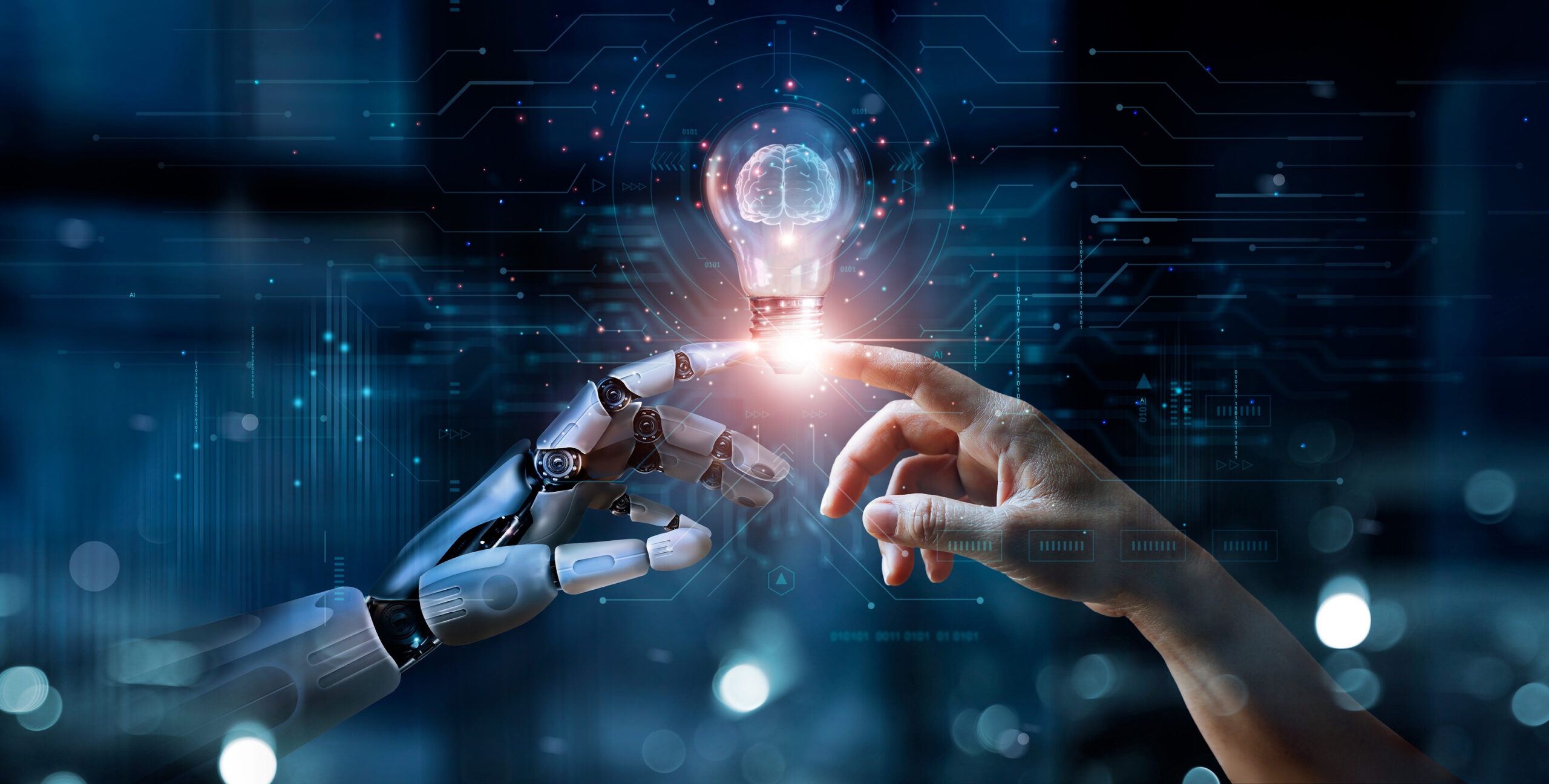It’s no secret that more and more organisations are harnessing the abilities of AI and automation, with the two themes dominating discussions within the customer service realm. With speculation that AI could be gearing up to replace human-led customer service routes, we were intrigued to see whether our financial services sector audience saw their customer service teams’ jobs at risk.
As a way of quickly and effectively gauging the temperature on this topic, we ran a LinkedIn poll across our Davies Group and Davies Consulting pages, and soon discovered that things may not be as clear-cut on this topic as we first believed.
The results are in
We posed the question “Will AI replace customer service jobs?” to our LinkedIn audiences to gain insight into their predictions on this divisive topic.
| Answer | Raw number of votes | Percentage (%) |
| Yes | 127 | 37% |
| No | 163 | 48% |
| Not sure | 44 | 13% |
Our poll revealed that the majority (48%) of voters believe that AI wouldn’t pose a threat to customer service jobs. But with just a 9% difference between those that believe it will, and 13% of people unsure what they think, there is still much division over how much AI will change customer service roles.
Our poll prompted much discussion in the comments, with many of our audience believing that a combination of human and machine power will create the ultimate recipe for success, looking towards the future. These are just some of the views we received:
“In my opinion, those who get it right will understand the power of a connected intelligence model.”
“Would I be happy with Amazon provisioning customer service from AI? Yes. Fulfilling a critical illness policy claim? Well, I could see elements of AI augmenting it, but it’s the human touch that adds to the experience. So, the answer is ‘yes and no’ dependant on situations.”
“AI should be used to enhance customer experiences, not replace current human interactions carte blanche.”
Alternatively, others believed AI may be a threat to jobs dependant on the level of customer service being provided.
“AI will replace first line, but human interaction will be required for non-standard or VIP requests.”
“Answer is both. Yes, tier 1 customer services will go to AI, tier 2 or 3 still need humans.”
What our expert thinks
As soon as the results from our poll were in, we turned to our Global Director of Innovation, Craig John, to find out where he thinks the relationship between AI and customer service is going in the years ahead.
Craig acknowledged that we are living in a world where AI will most definitely cause a shift in the specifics of customer service jobs, but not in a way that would replace them altogether. He explained that despite AI forcing companies to adopt digital-first agendas around customer contact and customer service for convenience, humans will play an integral part in providing higher standards of customer service.
He said: “I think the human intelligence will be better augmented in the future. And that we’ll be able to have more human contact, as a result of automating some of the mundane tasks that sit behind customer service agents’ working days.
“I think AI will just enable the customer service to be more equipped with understanding personalisation. It’ll be able to talk to that customer’s needs in real time and surface data and perspectives like vulnerability and through voice, whilst servicing the agent in the back end; thus allowing humans to spend more precious time on the phone with that customer. We’ll also likely start seeing agents being more proactive and preventative because of this. So, I don’t think AI will replace customer service, but rather it’ll change it in that sense, and we’re already seeing this.”
However, the discussion also touched on the possibility of a dwindling usage of AI going forwards. Craig explained that with the mass buy-in we’re currently observing towards AI, that there’s potential for humans to become less focused on its application in the coming years.
He explained: “I think there’s a possibility that humans will become numb to the convenience of AI and dumbing ourselves down—specifically in relation to generative AI where we’re seeing humans simply accepting the outputs ‘as is’. People are already becoming subservient to it, rather than the other way around and therefore society has a role to play in it’s adoption too.”
But one area Craig predicts AI will certainly overpower humans in, is for dealing with the failure demand interactions of customer service. Drawing on previous work Davies has conducted for a telecommunications provider, Craig explained that utilising AI and Robotic Process Automation (RPA) to deal with the basic business enquiries and re-strategizing our human intelligence is where organisations have the potential to save millions of pounds. In addition, for other industries such as the NHS, there is a phenomenal opportunity to embrace new data models and glean new perspectives from AI, to prevent cost and improve outcomes for patients.
To sum up
Taking our poll results and Davies’ own experts views into account, it’s clear there is still much we can’t be certain of when it comes to evolving AI technology. However, there’s much to suggest it will impact different levels of customer service, in different ways.
This will enable businesses to leverage greater human enablement, taking their staff away from low-value, mundane tasks, and giving them more time to spend on complex value add tasks that matter most to the customers.

